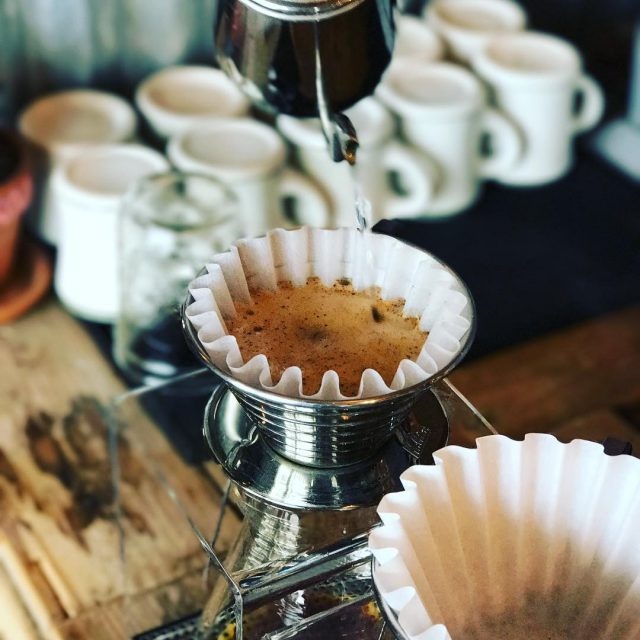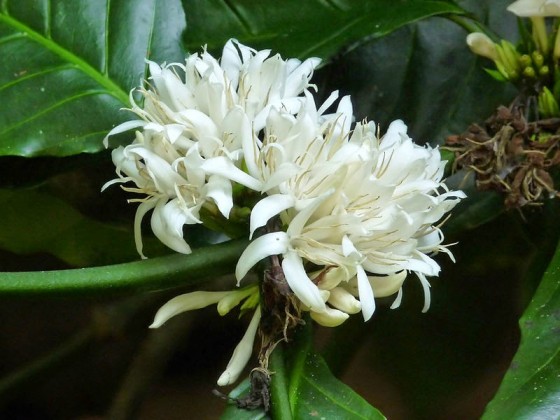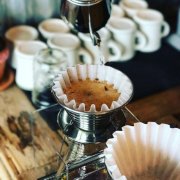Yield characteristics of Guatemalan Coffee beans
For professional baristas, please follow the coffee workshop (Wechat official account cafe_style)
Guatemala
The extra-hard coffee beans here are full-grained, delicious and balanced, and the pure Guatemala coffee once enjoyed a reputation as the best quality coffee in the world, but its quality also declined for a time. What is gratifying, however, is that its reputation is gradually being restored. In 1750, Father Jesuit introduced coffee trees to Guatemala, where the coffee industry was developed by German colonization at the end of the 19th century. Today, most of the coffee industry's production takes place in the south of the country. Here, the slopes of Sierra Madre volcano provide ideal conditions for growing high-quality coffee beans, and coffee growing at high altitudes is full of vitality. Compared with other kinds of coffee, tasters prefer this mixed flavor coffee with spicy flavor. The extra-hard coffee beans here are a rare good coffee with full grains, delicious taste and balanced acidity. In addition, Guatemala has attracted a lot of attention because of its giant coffee beans.
The coffee industry, which once boomed the country, still dominates the national economy. Unfortunately, the domestic political situation is not good for coffee growers. High output is usually a sign of a country's overall economic prosperity. However, coffee production in Guatemala has declined relatively, at 700kg per hectare, while that in El Salvador is 900kg per hectare and that in Costa Rica is even more astonishing, at 1700 kg per hectare. The export of Guatemalan coffee is controlled by private companies, but the National Coffee Council (Asociacion Nacional de Cafe) controls other sectors of the coffee industry. At present, some of the best quality coffee from Guatemala is exported to Japan, where each cup of coffee sells for $3 to $4. Most small-scale producers are descended from the Mayans (Mayan), who like to call cups local people. Currently, they are also benefiting from a U.S.-funded project, known locally as The Project, which plans to invest $2.5 million to encourage the opening of small, high-quality coffee plantations.
The main areas rich in high-quality coffee in Guatemala are Lake Attilan (Lake Atitlan) and Huehuentenango. The purpose of the project is to help restore the vicious circle of high yield and low quality that has plagued the world coffee industry. For example, Bourbon trees grow taller and produce fewer beans than the new dwarf trees, and although they all belong to Arabica coffee varieties, bourbon trees produce better beans and are more popular with gourmets. The project also hopes to encourage local producers to process their own coffee beans, as most coffee fruits are now sold to middlemen, and if coffee processing can be done in local factories, its value and even quality may be improved. Antigua (Antigua) is also a famous producer of coffee. Antigua coffee is produced in Hacienda Carmona, where the best quality coffee is EL Pulcal, which is not only of good quality, but also has a stronger flavor, richer taste and stronger tobacco flavor than other Guatemalan coffees. Every 30 years or so, the area near Antigua is hit by a volcanic eruption, which provides more nitrogen to the already fertile land, and plenty of rainfall and sunlight make the place more suitable for growing coffee. Other coffee producers include San Marco, Oriente & Coban, Palcya, Mataquescuintia and La Uman in Zacapa. The establishment of the Special Coffee Association means that the Government of Guatemala has begun to pay attention to high-quality coffee, and the efforts made for it will soon bear fruit.

Important Notice :
前街咖啡 FrontStreet Coffee has moved to new addredd:
FrontStreet Coffee Address: 315,Donghua East Road,GuangZhou
Tel:020 38364473
- Prev

You don't know why coffee is synthetic caffeine when you drink coffee every day.
Professional baristas please follow the coffee workshop (Wechat official account cafe_style) We drink 2.25 billion cups of coffee every day, which adds up to about 3-4 people who drink one cup a day. If so many people drink coffee, the area of coffee grown will not be too large.
- Next

Introduction to the quality and Flavor of Haitian Coffee beans full-bodied flavor of Japanese Blue Mountains
Professional baristas Please follow the Coffee Workshop (Wechat official account cafe_style) Haiti good coffee from a land with political troubles despite well-known problems and fluctuating quality, Haiti (Haiti) is still trying to produce some high-quality coffee. Most of the coffee produced in Haiti is grown in a pure natural state.
Related
- Beginners will see the "Coffee pull flower" guide!
- What is the difference between ice blog purified milk and ordinary milk coffee?
- Why is the Philippines the largest producer of crops in Liberia?
- For coffee extraction, should the fine powder be retained?
- How does extracted espresso fill pressed powder? How much strength does it take to press the powder?
- How to make jasmine cold extract coffee? Is the jasmine + latte good?
- Will this little toy really make the coffee taste better? How does Lily Drip affect coffee extraction?
- Will the action of slapping the filter cup also affect coffee extraction?
- What's the difference between powder-to-water ratio and powder-to-liquid ratio?
- What is the Ethiopian local species? What does it have to do with Heirloom native species?

